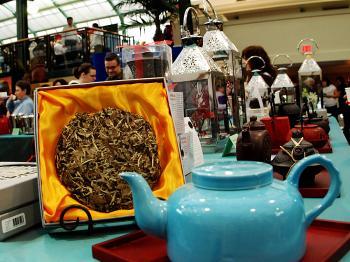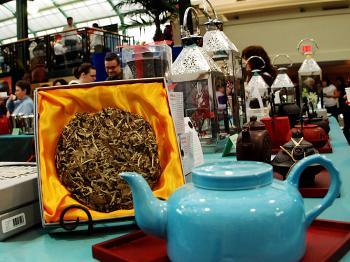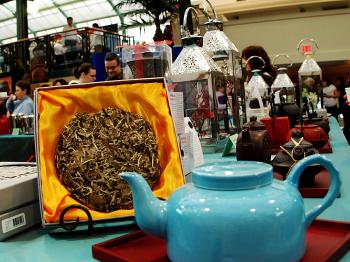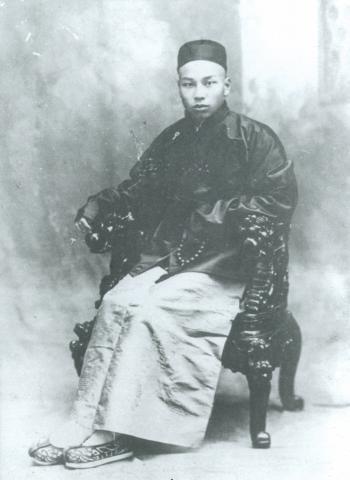These were just some of the more interesting tea paraphernalia on display at the 3rd annual Victoria Tea Festival, North America’s largest public tea consumer event, held at Crystal Garden on February 14 and 15.
Over the two days, about 3,000 tea lovers gathered around dozens of exhibits where the aromas and flavours of hot steeped tea waited, ready to be savoured. Expert lectures, live musicians, a tealeaf reader and tea poet Earlene Grey rounded out the event.
The Victoria Tea festival is run exclusively by volunteers to raise funds for Camosun College Child Care Services. Renovations and major equipment purchases bought with the proceeds provide high quality childcare for Camosun students.
“We like the tea fest because it too is a strong community-driven project” said Robert McCauley of Guayaki Sustainable Rainforest Products. “The Camosun College Child Care Services is the beneficiary and that ties in with the whole Guayaki business model. We love the fact that you’re strengthening the communities here, we’re getting our product out there which strengthens the community in South America.”







